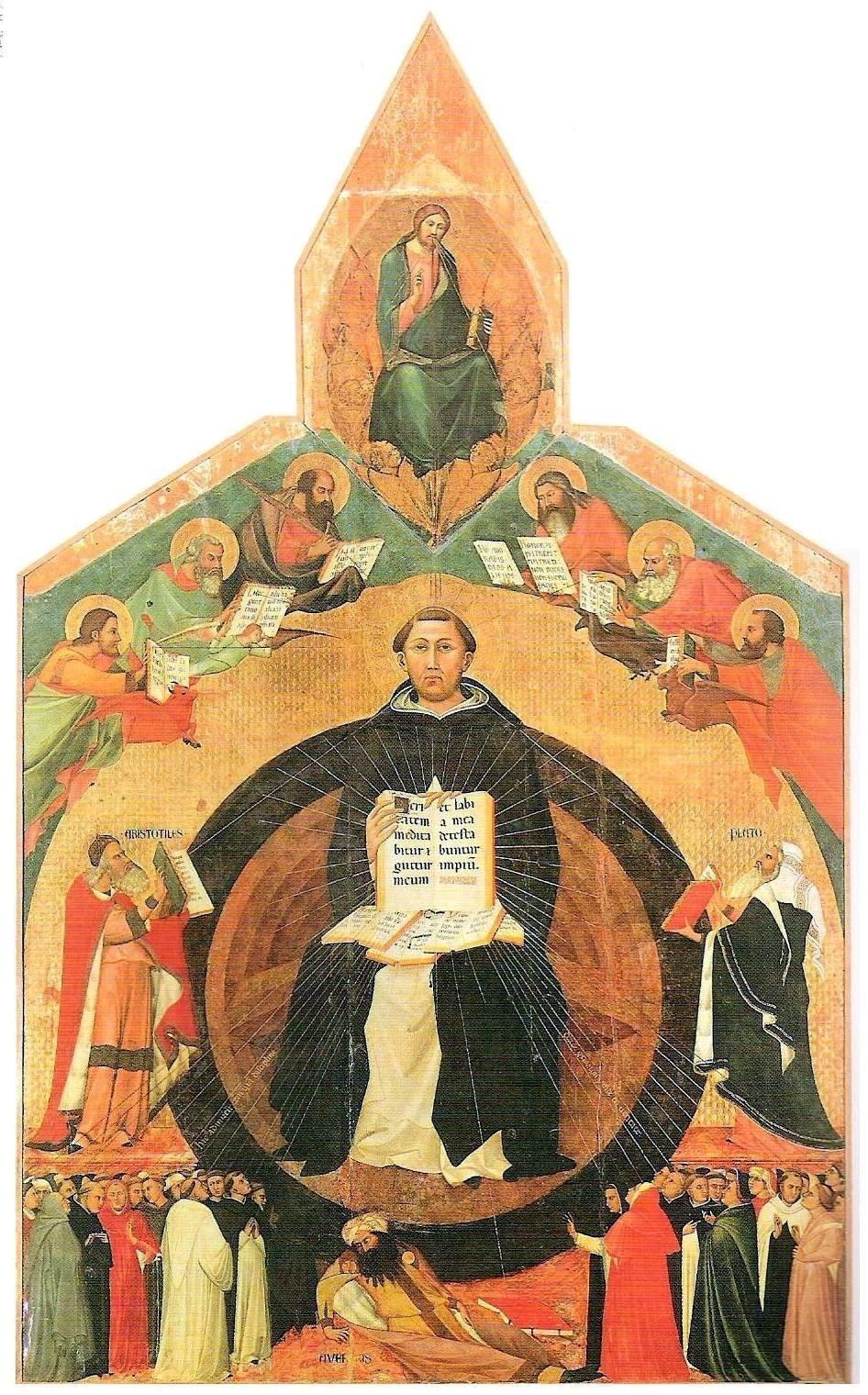Jesus
and
Scholasticism
There are many theories surrounding the early years of Jesus’ life and it seems he did more than just help his surrogate father Joseph in carpentry. It's likely his family came from a small but respected sect already at odds with the Jewish authorities and that Jesus traveled to the East to study. He was around thirty when he encountered the fishermen Peter and Paul, and the other disciples.
What we know about the three years before his crucifixion comes from the New Testament. While the Old Testament is a pact, or "Covenant" between God and Israel before the birth of Jesus, the New Testament is based on his life following the prophecy of Christ, son of God, come to lead man to his salvation. The Angel Gabriel, sent by God, told Mary to name the child Jesus, or “Savior.”
Between the 1st and 4th centuries over a hundred books were written on his teachings, including fifty gospels. The four gospels in the New Testament, Matthew, Mark, Luke and John, were written before and after Jerusalem was destroyed in 70 AD. Matthew, a direct disciple of Jesus, became a missionary. It’s believed he wrote his gospel in Palestine, but his authorship is questioned by some.
He and Luke are responsible for the story of the Immaculate Conception, and in John’s version emphasis is placed on the divine nature of Jesus. The gospels were written in Greek: The remaining books, the ones not chosen for the Bible, were studied in renegade Christian communities such as the Gnostics. They are called the Apocryphal or “hidden” books of the New Testament.
Around the 11th century a group of religious scholars attempted to reconcile Christian doctrine and the theory of Revelation with the teachings of the Greek philosophers. Their efforts inspired an intellectual resurgence called Scholasticism. The group established a university that encouraged the study of the ancient Greeks but the focus remained fundamentally theological. religious dogma took precedence over rational inquiry.
The most well known scholastics of the 11th century are the French philosophers Anselm and Abelard (Anselm’s student), the clergyman Roscelin who founded the Nominalistic school of thought, and Maimonides, rabbi, philosopher and physician.
The Scholastics of the 12th century included Thomas Aquinas, Albertus Magnus, Roger Bacon, St. Bonaventura, and Duns Scotus. Nominalism, in opposition to Scholasticism on certain points, became dominant in the 14th century with William of Ockham.
More details: http://www.answers.com/topic/scholasticism#ixzz2UwVEQflt

Saint Thomas Aquinas with Aristotle
and Plato - Francesco Traini
Jesus has been labeled as a religious figure of divine origin and in so doing has been denied his rightful role as a philosopher and peaceful social activist. Following the tradition of the early philosophers he encouraged people to relinquish material wealth and desires for revenge to find contentment.
There were many similarities with Socrates. He was an educator and reached out to all social classes. He never wrote anything and, instead of going into exile, accepted his official death sentence.
Jesus questioned the way his Judeo religion took advantage of the population which was mostly poor (for example imposing high taxes and taking their possessions if they didn't pay up). As with Socrates his underlying message was one of forgivenes, opposite from the Old Testament's “eye for an eye”.

The Scholastics